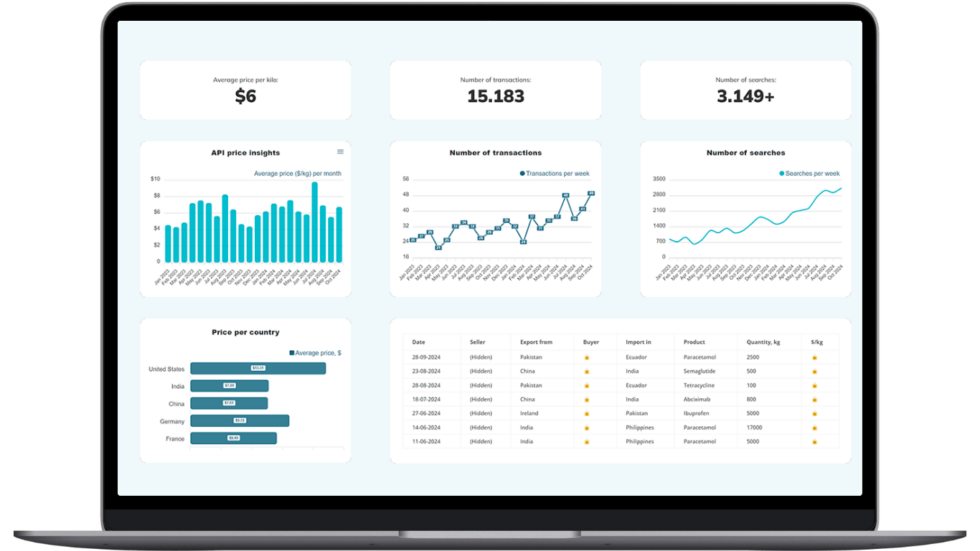Top 5 Global Health Threats
Facing the Pharmaceutical Industry

Su Keles| Posted on May 23, 2023
The pharmaceutical industry plays a vital role in advancing global health by developing innovative drugs and therapies. However, it also faces numerous challenges and health threats that impact its operations and the well-being of communities. In this blog post, we will explore the top five global health threats currently facing the pharmaceutical industry.
By understanding these challenges and adopting effective strategies, stakeholders can work towards safeguarding public health and driving positive change in the industry.
1. Antimicrobial Resistance (AMR)
Antimicrobial resistance has emerged as a critical global health threat, rendering many once-effective drugs ineffective against infections. The overuse and misuse of antibiotics have accelerated the development of drug-resistant bacteria, making it challenging to combat infections.
To address this issue, the pharmaceutical industry must invest in research and development to develop new antimicrobial drugs and promote responsible antibiotic stewardship practices. Additionally, collaboration with healthcare providers, policymakers, and regulatory bodies is crucial in implementing effective strategies to prevent the spread of AMR.
2. Pandemics and Emerging Infectious Diseases
Pandemics and emerging infectious diseases pose significant threats to global health security. Outbreaks like Ebola, Zika, and most recently, COVID-19, have highlighted the importance of rapid response capabilities and effective vaccines. The pharmaceutical industry plays a pivotal role in developing vaccines, antiviral drugs, and diagnostic tools to combat these diseases.
Strengthening partnerships with global health organizations, investing in research and development for new vaccines, and enhancing surveillance systems are key strategies to mitigate the impact of future pandemics.
3. Chronic Non-Communicable Diseases
Chronic non-communicable diseases (NCDs), including cardiovascular diseases, cancer, diabetes, and respiratory illnesses, have become leading causes of death worldwide. The pharmaceutical industry faces the challenge of developing innovative therapies, preventive strategies, and affordable treatments to address the growing burden of NCDs.
Collaborative efforts between pharmaceutical companies, healthcare providers, and policymakers are crucial in promoting lifestyle modifications, raising awareness, and ensuring access to affordable medications for patients.
4. Drug Pricing and Access
The rising cost of pharmaceuticals and limited access to essential medications pose significant challenges to global health. Balancing the need for innovation and fair pricing while ensuring affordability and accessibility for patients is a complex issue.
Pharmaceutical companies must collaborate with governments, insurers, and healthcare providers to develop sustainable pricing models and expand access to life-saving drugs. Additionally, advocating for policies that promote transparency in drug pricing and supporting generic drug production can contribute to addressing this global health threat.

Make Smarter API Decisions with Data
Access exclusive insights on global API pricing, export/import transactions, competitor activities and market intelligence.
5. Conflict of Interest and Industry Influence: Transparency and Trust
Counterfeit and substandard medicines pose a serious risk to patient safety and public health. These illicit products often lack proper quality control, contain incorrect or harmful ingredients, and erode trust in the pharmaceutical industry.
Regulatory authorities, law enforcement agencies, and pharmaceutical companies must collaborate to strengthen supply chain security, enhance product authentication technologies, and raise awareness about the dangers of counterfeit medications. Additionally, implementing stricter regulations and penalties for counterfeit drug production and distribution can help mitigate this threat.
Conclusion
The pharmaceutical industry faces several global health threats that require proactive measures and collaboration to ensure the well-being of communities worldwide. By addressing challenges such as antimicrobial resistance, pandemics, chronic diseases, drug pricing and access, and counterfeit medicines, stakeholders can work towards innovative solutions and strategies.
By doing so, the industry can strengthen public health, improve access to life-saving medications, and contribute to a healthier future for all.
Thank you for reading!
FAQ
What Are the Top 5 Global Health Threats Facing the Pharmaceutical Industry?
The top five global health threats are Antimicrobial Resistance (AMR), Pandemics and Emerging Infectious Diseases, Chronic Non-Communicable Diseases, Drug Pricing and Access, and Conflict of Interest and Industry Influence: Transparency and Trust.
What is Antimicrobial Resistance (AMR) and How Can It Be Tackled?
Antimicrobial resistance renders many once-effective drugs ineffective against infections. To tackle this, the pharmaceutical industry should invest in R&D for new antimicrobials and collaborate with healthcare providers, policymakers, and regulatory bodies to prevent AMR spread.
How Do Pandemics and Emerging Infectious Diseases Affect the Pharmaceutical Industry?
Outbreaks like Ebola, Zika, and COVID-19 have shown the importance of rapid response and effective vaccines. The pharmaceutical industry can mitigate the impact of future pandemics through partnerships with global health organizations and investing in R&D for new vaccines.
What are Chronic Non-Communicable Diseases and How Does the Industry Face This Challenge?
Chronic non-communicable diseases include cardiovascular diseases, cancer, diabetes, and respiratory illnesses. The industry needs to develop innovative therapies, preventive strategies, and ensure access to affordable medications to tackle this challenge.
What Are the Issues Surrounding Drug Pricing and Access?
Balancing the need for innovation and fair pricing while ensuring affordability is a challenge. Collaboration with governments, insurers, and healthcare providers to develop sustainable pricing models can help.






Check out all other blogs here!